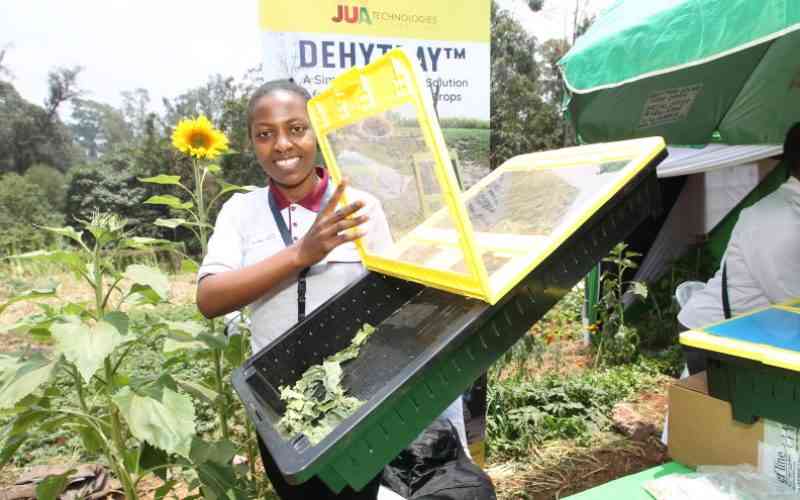×
The Standard e-Paper
Smart Minds Choose Us

Sales and Technology associate Naomi Mutysia introduce new in Market Dehytray at the 2022 Nairobi International trade fair at the Show ground Arena. The solar portable dries food for preservation and value addition. [Jonah Onyango, Standard]
The Nairobi International Trade Fair opened on Monday 26 for the first time after a two-year hiatus occasioned by the Covid-19 pandemic.